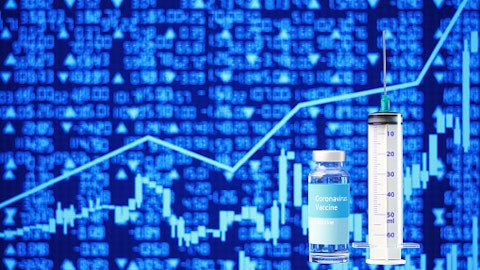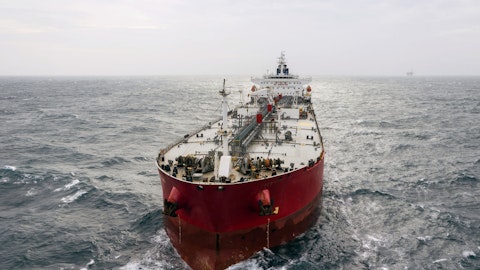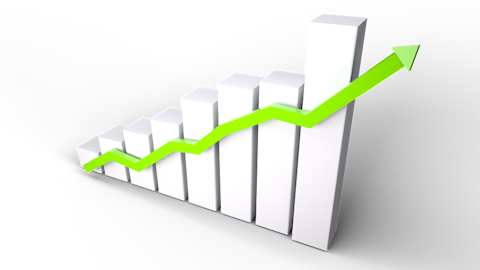Unidentified Analyst: No, that makes sense. And as we’re thinking about next year, kind of how fixed are you guys in the time charter? Can you just kind of remind us where you are with regard to charters coming off over the next couple of years?
Angeliki Frangou: Efstratios?
Efstratios Desypris: Yes. In next year, we only have around 80%. We have around 80% of our vessels — containers fixed. And we are starting to get also delivery of the newbuilding vessels coming from the end of this year. So, we will have also the replacement of the cash flows of the vessels that are coming up. But I would say that we are pretty much covered for at least ’24 in our fleet in the containership.
Unidentified Analyst: That’s helpful. Obviously, there’s been a lot of noise about climate change and the impact in terms of certain key trade routes. We’re seeing very, very low levels in the Panama Canal, which is causing kind of backlogs. Are you seeing that in other trade routes? And maybe you could just kind of talk higher level kind of what the impact you’re seeing from congestion and from low water levels is having on just broader demand across the different vessels that you guys operate in?
Angeliki Frangou: Yes, that’s a very good and very topical. Ted will go through, but a big picture you should think of the following. I mean, we saw the pickup on the waiting for Panama Canal. That is basically a 50% increase from what usually was there. And that is — it is actually going to be affecting — it’s like congestion. It affects — it creates longer time at sea, longer ton mile, and they have to divert. That is one charging point. And then — and it is basically like congestion. So I mean…
Ted Petrone: Yes. It’s such a big topic, the climate change. I think you’re going to El Nino now. You’re going to have some better grain out of South America, less out of Australia. You have water issues in Europe, which would sort of eliminate some of the takeaway from the biggest ships as the barges go inland. There is the yin and the yang. Also, I think, China was having rain in the wrong places. So it’s every year, you’re going to be looking at different issues that affect. But I do — as Angeliki said, the Panama Canal is definitely a freshwater issue, which is related or not to the climate change, but it’s going to run through the winter that could bring congestion for bulkers that are going with grain, the containers coming back, some of the [vessels] (ph) coming back from the Pacific.
There’s a lot of issues here. But really, the macroeconomics ones that we think are more instrumental in driving the market, but it’s certainly an issue that we’re all watching on the climate chain side.
Unidentified Analyst: And Ted, on the bulker with regard to the Panama Canal, are you getting inbound inquiries from some of the container, the vessel operators to really kind of extend trade route, i.e., kind of go around Africa as opposed to through the Panama Canal given where the backlog is of getting through the Panama Canal, or is that not yet something we’re seeing?
Ted Petrone: Yes. No, not yet. I think you’re going to see some more congestion as the Gulf grain season opens and clogs that canal more. You’ll be seeing some grain vessels going through the Suez going out to the Far East. So, even if congestion stays where it is, I think as Angeliki said, we’re probably at about 80 ships normally or about 130 now on the canal four days, not so much. But as that goes up, that may stay there in those numbers. But what you’ll be seeing is other ships doing longer routes, which you don’t calculate into the canal congestion, right, but it’s going to be affecting the routes, and it makes the fleet more inefficient, which is obviously brings the rates up.\



